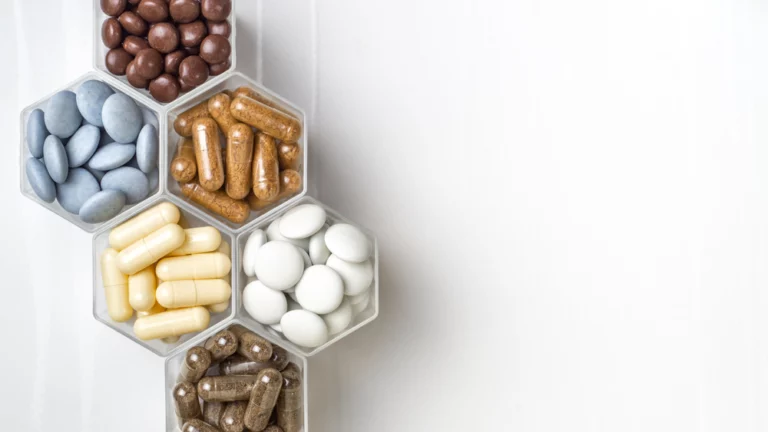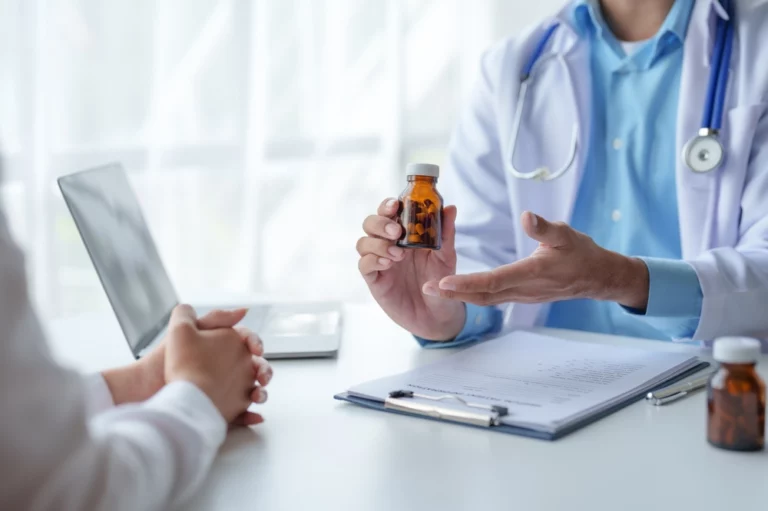After a night of drinking, you (like many people) may wake up in the morning with a nasty hangover, wondering how to get alcohol out of your system — and fast. It’s easy to get carried away and accidentally drink more than you intended, especially if you’re out with friends. Unfortunately, the next day’s headache and personal obligations can quickly remind you that you’ve had too much.
If you need to sober up fast, there are several things you can try to help decrease the time your body needs to process alcohol. Understanding how your body metabolizes alcohol can help you decrease the duration of a hangover so you can start feeling relief as soon as possible.
Connect With Us Now
Reach out to us now for immediate support, or let us know the best time to contact you through our confidential callback service. Your journey to healing is just a conversation away.
How Can You Flush Alcohol Out Of Your System?
While there are several ways you can try to eliminate alcohol from your system, they only work after the liver has metabolized it. Blood alcohol concentration will naturally reduce over time. You may try to flush out alcohol by drinking more water. However, the extent to which water helps depends on how much alcohol you have consumed as well as how long you’ve been drinking. Fortunately, there are several other things you can try to decrease the amount of alcohol that is still present in your body so you can start recovering:
- Stay hydrated: Drinking water before, during, and after consuming alcohol might help prevent hangovers and other nasty side effects. Adding a slice or two of lemon may also help protect your liver.
- Sip green tea: Over time, toxins form in the body as alcohol consumption increases. Green tea has high amounts of polyphenols, which help flush these toxins. By drinking green tea, you can undo some of the damage that alcohol causes.
- Switch to lower-strength drinks: As the alcohol content of your drink increases, so does the amount of water you lose. Try to stick with lighter alcoholic drinks like light beers to minimize the effects of dehydration.
- Replenish electrolytes: It’s a good idea to replace electrolytes lost during drinking. You can try Gatorade or another sports drink.
- Take a break from alcohol: If you always drink very heavily, try to take a few days off. By taking some time away from drinking, your liver can rest and heal without overloading it with more alcohol.
- Eat vegetables and probiotics: These foods can help your liver metabolize alcohol more quickly and even help remove dietary fats from your system. Incorporate plenty of probiotics like kombucha, kefir, or sauerkraut into your diet as well as leafy green vegetables like kale and spinach.
Your body can also eliminate some alcohol through sweat, so try to hit the gym or the trails if you feel up to it. The natural endorphins from working out will help you feel better, too. Make sure to stay well hydrated with plenty of water, though, as you may feel worse if you forget.

Should You Eat a Meal Before Drinking Alcohol?
Yes, many people find it helpful to eat a filling meal before drinking alcohol. Eating before a night out will dilute the amount of alcohol you drink due to the water content within your food. Proteins, fats, and fiber can also slow down the absorption of alcohol while preemptively fueling your body with the minerals and vitamins that alcohol depletes. Some good food choices include:
- Bananas
- Oats
- Berries
- Sweet potato
- Avocado
- Beetroot
- Quinoa
There are some foods you should avoid eating before drinking alcohol. Pasta, white bread, and other refined carbs are digested rapidly and do not offer the same benefits as other options. These foods can also cause blood sugar to spike and crash, leading to overeating later at night.
What Breaks Down Alcohol In Your System?
Unfortunately, there is nothing that will quickly absorb alcohol out of your system. The single most significant factor in alcohol metabolization is time. The liver metabolizes over 90% of the alcohol in your body, while the elimination of smaller amounts occurs through urine, sweat, and respiration. The best way to remove alcohol from your body is to wait, rest, and drink as much water as possible. Alcohol is a diuretic, and drinking it will cause you to urinate more, flushing out additional water from your system.

How Long Does Alcohol Stay in Your System?
Alcohol will remain detectable in your urine for up to three days following your last drink. Depending on how healthy it is, the liver will metabolize alcohol at a relatively constant rate of one drink per hour. In general, men tend to metabolize alcohol more effectively than women. However, if there is an excessive amount of alcohol in the blood, the liver is not able to speed up the process. After a particularly heavy night of drinking, you may be feeling the effects of a hangover for more than a full day.
Signs of Alcohol Addiction
Approximately 29 million people in the United States suffer from alcohol abuse. Unhealthy drinking habits or abusing alcohol can often lead to physical dependency or addiction. If you are wondering how to get alcohol out of your system, it could be because of alcohol abuse.
Alcohol abuse ranges from mild to severe and can include binge drinking, alcoholism, and other forms of unsafe drinking. Alcohol abuse puts your health and safety at risk. You also risk other people’s lives if you drink and drive. If you make poor choices while drinking, you could also face significant social and legal repercussions. You may have a problem with alcohol if you:
- Consume alcoholic beverages more often and in larger quantities than intended.
- Find it hard to cut back or control your drinking.
- Spend most of your time finding ways to acquire or drink alcohol or recovering from the effects of overconsumption.
- Experience overwhelming cravings for alcohol.
- Cannot fulfill your family, work or school obligations because of alcohol.
- Continue to drink even though you’re having recurrent social or interpersonal problems due to your drinking habits.
- Stop participating in recreational or occupational activities that are important to you due to alcohol.
- Drink alcohol when it is physically dangerous to do so, such as when operating heavy machinery or a vehicle.
- Continue to drink even though you are experiencing physical or psychological problems that are caused or made worse by alcohol.
- Experience an increased tolerance of alcohol, which causes you to drink more to achieve the desired effect.
- Notice withdrawal symptoms (tremors, nausea, or vomiting) when you stop drinking and resort to other substances to alleviate these symptoms.
- You have suffered legal consequences from your alcohol use or injured someone because of it.
If you meet at least two of these criteria within twelve months, you may have an alcohol use disorder. The severity of your situation is dependent on the number of criteria you meet. You may have a severe case if you experience at least six of these symptoms. If you experience two to three criteria, your case may be mild, while meeting four to five of these criteria indicates you may have a moderate problem with alcohol consumption.
Read about how to help a functioning addict in three steps.
Take Our Addiction Quiz for Recovery Insights
Symptoms Of Alcohol Withdrawal
While not everyone who experiences an alcohol use disorder will also experience withdrawal symptoms, heavy users are at greater risk. These symptoms range in severity and can appear when you attempt to stop or reduce your drinking after a long period of heavy consumption. You might be experiencing alcohol withdrawal symptoms if you notice the following:
- Anxiety
- Dilated pupils
- Tremors
- Vomiting
- Nausea
- Increased heart rate
- Headache
- Irritability
- Sweating
- Insomnia
- Confusion
- Nightmares
- High blood pressure
- Changes in mood
These symptoms may worsen over a few days, while some mild symptoms persist for weeks. Because everyone is different, withdrawal can manifest differently depending on the amount and frequency used as well as individual body composition. Alcohol withdrawal can be extremely dangerous. Severe cases can lead to delirium tremens, which may cause seizures, hallucinations, rapid breathing, fever, and extreme confusion. Severe alcohol withdrawal symptoms indicate a medical emergency, and you must go to a hospital for treatment. These severe symptoms can be deadly if not treated.
Learn how to identify an alcoholic seizure.

How Do I Know If I Need Alcohol Detox?
Not everyone who has an alcohol use disorder needs medical detox. However, long-term, heavy alcohol abuse can have a substantial effect on the body, and physiological addiction makes it extremely dangerous to detox on your own. Severe alcohol abuse may cause seizures, hallucinations, delirium tremens, and even death. With appropriate medical supervision, you can have the support you need to control withdrawal symptoms and reduce your risk of experiencing complications. The duration of medical detox will depend on the extent of your symptoms and overall physical condition.
Once you have undergone detox in a medically managed setting, you will have a better idea of your specific treatment options, depending on the severity of your condition. Once in treatment, you can address the reasons behind your alcohol use and receive the help you need to stay sober.
Are You Covered For Treatment?
Oasis Recovery Center partners with numerous private insurance providers. Our team is committed to assisting you in quickly and effortlessly verifying your insurance coverage for treatment.
Medical Alcohol Detox In Asheville, North Carolina
If you or a loved one want to detox from alcohol safely, contact Asheville Detox Center in Asheville, North Carolina. Our medical detox facility has everything clients need to overcome withdrawal symptoms and seamlessly transition into addiction treatment, including on-site doctors, medication-assisted treatment, comfort medications, supplements, and more. Call today to learn how you can safely get alcohol out of your system and overcome addiction for good.







